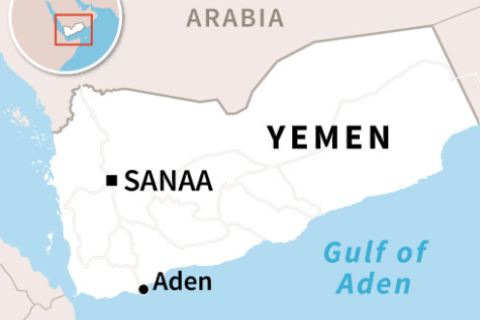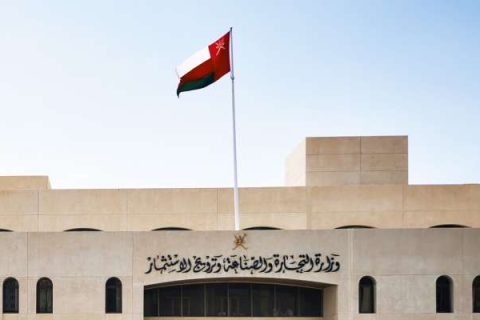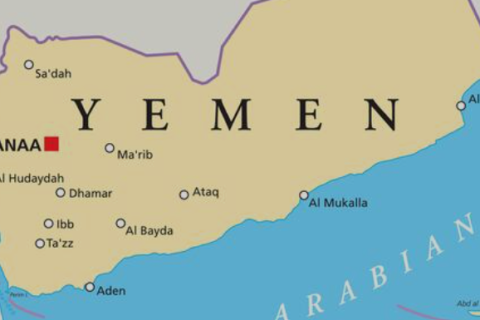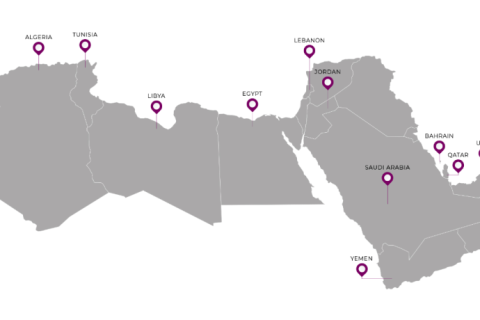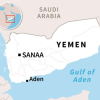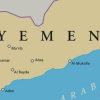A Guide for IP Experts – Introduction to The Qatari trademark Law
Acquiring knowledge in intellectual property allows applicants to obtain smooth registrations and have the potential to overcome and obstacle that they may threaten one’s creative endeavors.
There are certain guidelines in Qatar where each individual should be aware of. By adhering to these principles, applicants can ensure a smoother journey towards protecting their intellectual assets.
Why Trademark protection in Qatar?
Trademark laws are essential in empowering individuals with the knowledge necessary to protect their marks from daily infringements. They play a pivotal role in shielding brand owners from the risks of dilution and confusion in the marketplace. A thorough understanding of trademarks is key to ensuring one’s rights are safeguarded, thereby reducing the likelihood of application rejections.
Qatar, a member of the Gulf Cooperation Council (GCC), is recognized for its rapidly expanding economy which attracts businessmen to invest and grow their operations within the region. With its global connectivity and strategic location, Qatar is a prime hub for international trade and commerce, offering a strategic advantage for businessmen aiming to broaden their reach in the Middle East. Furthermore, Qatar has developed a comprehensive legal framework for intellectual property, providing legal recognition and protection for trademarks.
The country’s commitment to infrastructure development, favorable climate, and culture of innovation were significant factors in its selection as one of the host nations for the FIFA World Cup in 2022, distinguishing it among other countries in the Middle East.
Primary trademark laws and implementing regulations relating to trademark protection and enforcement in Qatar
Trademarks in Qatar are being governed, protected and enforced by the Ministerial Decree No. 56 of the year 2023 relating to the issuance of the implementing regulations of the Trademarks Law of the Gulf Cooperation Council States.
Primary International treaties and agreements relating to trademark protection and enforcement in Qatar
Qatar is a member of several international treaties. It has endorsed the Paris Convention which plays a vital role in protecting the intellectual property on the 5th of April 2000, which led to joining the TRIPS Agreement on Trade related aspects of intellectual property rights to safeguard intellectual property rights and enforcing it on the 31st of December 2008.
Furthermore, due to Qatar’s interest in protecting copyrights, it became a member of the Berne Convention which concerns protecting Artistic and Literary Works on the 5th of April 2000 and a valuable member of the WIPO Copyright Treaty on the 28th of October 2005.
Qatar Trademark Authorities
There are several competent authorities in Qatar that are responsible for resolving the disputes that arise from trademark infringements. Every owner has the right to defend his exclusive right over his trademark by taking the following actions
- Administrative actions: The trademark office at the Ministry of Commerce and Industry plays a vital role in the administrative actions related to trademarks;
- Civil actions before courts: The Investment and Trade Court established in 2021 is responsible for overseeing and resolving all intellectual property disputes whether at first instance, appeal, or cassation level
- Customs enforcement: The main role of the custom officers is detaining the suspicious counterfeited goods at the port of entry.
Deciphering the Trademark Law in Qatar
– Absolute Conditions to protect a trademark
There are certain conditions imposed by the trademark law that every applicant should be aware of. The lack of compliance with those conditions will definitely render the mark vulnerable for registration. No trademark is eligible for registration if it acquires the below attributes:
- Trademarks that are devoid of any distinctive character.
- Trademarks exclusively consist of signs regularly used in trade, to refer to a type, kind, quality, quantity, intended purpose, value, geographical origin, or other characteristics relating to the goods or service the trademark is registered on.
- Trademarks which exclusively consist of signs or indications that are used in the normal course of the trade.
- Trademarks that are contrary to public policy.
- Trademarks that are contrary to public morals and ethics.
- Trademarks that deceive the public, as to the nature, quality, or source of the goods or services.
- Trademarks which include public emblems, flags, and other symbols relating to the state, Arab, or international organizations, or one of their institutions, or a foreign state unless so authorized by it, as well as any imitation of such emblems, flags, or symbols.
- Trademarks include symbols of the Red Crescent or Red Cross and other similar imitating symbols.
- Trademarks that are similar to or resemble symbols of a purely religious character.
- Trademarks are geographical names whose protection or use create confusion as to the origin or source of the goods, the products, or the services.
- Trademarks are essentially the name, surname, picture, or emblem of a third party unless prior approval is provided.
- Trademarks which are indications of honorary distinctions that the applicant for registration cannot prove.
– International designation through WIPO
Despite becoming a contributing member in many Treaties and conventions, Qatar hasn’t yet become a party of the Madrid protocol. Consequently, if you wish to apply for an international application through WIPO, you can’t designate Qatar as an option.
– Trademark Filing Priority Claims
Claiming priority is one of the strategic approaches that enables applicants to seek trademark protection based on a prior trademark that has been filed in one of the Paris Convention member states. It’s an exclusive right granted by the provisions of Paris Convention to applicants streamlining the registration process especially when they intend to expand the registration internationally. It is worth mentioning, that every applicant has a period of six months starting from the date of filing to claim priority in Qatar.
Conducting a Trademark Search:
Conducting a search for a trademark is a voluntary action that may be taken by the applicant prior to filing the trademark application to check its availability for registration or not, which in turn minimizes the risk of rejection at the examination phase. It is worth mentioning that conducting a trademark search in Qatar is only possible for wordmarks and it covers both Arabic and English languages, thus searching for design marks is impossible. Similarly, searching for a trademark by applicant name is impossible.
You may only opt to an official trademark search in Qatar by filing a search application manually before the Trademark Office. As a result, the Trademark Office will check the existence of previously filed/registered similar/identical trademarks in its database or not, then issue an official search report with the result. The result of the search is not compulsory, meaning that if the search yielded the existence of similar/identical trademarks but the applicant still wishes to proceed with filing its trademark application, then the applicant can do that taking into account that the risk of rejection of its trademark application upon examination and the need to file a reply to the rejection before the Grievance Committee to try to overcome this rejection.
Applicants may opt for conducting unofficial searches done through private companies’ own database collection to check the registrability of their trademarks in Qatar, however this option poses a risk of receiving imprecise results which may lead to a risk of rejection. Therefore, opting for an official search in Qatar is more advisable.
– Trademark Filing – Required Documents
Many people wonder if registering a trademark in Qatar can be done by themselves or requires a local representative. In fact, local applicants have the right to register the trademark themselves or through local representatives after completing a power of attorney before the Ministry of Justice in Qatar authorizing the said representative to register the trademark on their behalf in Qatar. However, foreign applicants not residing in Qatar could only register their trademarks via local representatives located in Qatar after signing, notarizing, and legalizing a power of attorney before the Embassy of Qatar in their country of residence authorizing the said representative to register the trademark on their behalf in Qatar, noting that the legalized power of attorney should undergo local legalization before the Ministry of Foreign Affairs in Qatar before being submitted to the Trademark Office.
Aside from that, a copy of the applicant’s Qatari ID is required if the applicant is a Qatari national or resident. However, if the applicant is a foreign individual not residing in Qatar, then a copy of the applicant’s passport is required.
Likewise, if the applicant is a company then we need to differentiate between local Qatari companies and foreign companies not residing in Qatar. If the applicant is a Qatari company, then a copy of the commercial registration along with a copy of the Qatari IDs of the authorized signatories mention in the commercial registration are required at the time of filing of the application. However, if the applicant is a foreign company not residing in Qatar, then a copy of the commercial registration document issued by the relevant authorities translated to Arabic is required at the time of filing of the application.
It’s worth emphasizing that failure to submit the abovementioned required documents at the time of filing the trademark application will result in the issuance of an office action granting the applicant a period of 30 days from the date of notification of examination decision to submit the said documents, otherwise application will be considered abandoned. Applicant may attempt filing an extension of time request to submit the missing documents, however it is subject to the TMO’s decision whether to accept or reject the said request and assign the duration of the extended period if approved.
– Trademark Classifications
Unlike other countries that have adopted the multiclass system, Qatar embraces the single class system. This implies that if a certain applicant is interested in filing a trademark that covers more the one class, they are mandated to file a separate application for each class.
– Limitation on classes, and goods and services
Applicants should assign the list of goods and services that they want to protect the trademark on under the application. It’s worth mentioning that we can no longer choose to register a trademark on the class header. Alternatively, applicants should determine precisely the list of goods or services that they are interested in.
Not only Qatar prohibits the registration of alcohol and pork related goods, but also deems the registration of the bar, cocktail lounge and night club services as illicit due to its contradiction with the Islamic Sharia’a and public morals.
– Trademark Registration Timeframe
The trademark registration process in Qatar takes between 9 to 12 months to be completed.
– Trademark Examination and Notification
There are two examination phases in Qatar:
- Formal examination: in which the examiner checks if the application has met all the required formalities. Those formalities include submission of all required documents, proper authentication of the required documents, compatibility of the list of goods/services with the selected class number, and compliance of the list of goods/services with the local trademark regulations in Qatar. As mentioned previously, applicant has 30 days from the notification date of the said decision to complete the requested formalities, otherwise application will be considered abandoned.
- Substantive examination: Once all formalities are met, the trademark application will undergo technical examination to check the trademark’s similarity with previously filed/registered marks in Qatar and if it has met all the criteria of an eligible trademark. As a result, the examiner might request association of the trademark with a previously similar filed/registered trademark owned by the same applicant, disclaimer of exclusive rights of use to some elements that the mark consists of, or pledge to use the mark as a whole within 30 days from the notification date of the said decision, otherwise the application will be considered abandoned.
Once the application fulfils all formal and substantive requirements set by local regulations, an official acceptance decision will be issued granting the applicant 30 days from the notification date to settle the official publication fees, otherwise the application will be deemed abandoned.
– Trademark Rejection
If the examiner deemed the trademark unregistrable due to its similarity to a previously filed/registered trademark or last of trademark criteria, the trademark application will be rejected. The applicant has the right to file a reply against the said decision within a period of 60 days from the official notification date, otherwise the application would be considered withdrawn.
Once the reply is filed, a hearing date shall be set before the Grievance Committee within a few months, and a decision will be issued after 1 week from the hearing date. The Committee’s decision can be appealed before the Investment and Trade Court within 60 days from the notification date before the Department of First Instance Court. The latter’s decision can be appealed before the Department of Appeal within 15 days from notification date. Lastly, the applicant may appeal the appeal department’s decision before the Department of Cassation within 30 days from notification date.
– Trademark Publication
The trademark application shall be published in the Industrial Property gazette after 2 months from the date of settlement of the official publication fees.
– Trademark Oppositions
Any interested party that finds a similar published mark to theirs in the Industrial Property gazette has the right to file an opposition against the said published mark within 60 days starting from the date of publication after settlement of the relevant fees. However, the applicant has the right to defend their mark and reply to the said opposition within a period of 60 days starting from the date of notification, otherwise the application is considered withdrawn. After which, both parties have the right to request only once a hearing session to submit additional claims or supporting documents. The decision of the Oppositions Committee is appealable before the Department of First Instance at the Investment and Trade Court within 30 days from the notification date. The latter’s decision can be appealed before the Department of Appeal within 15 days from notification date. Lastly, the applicant may appeal the appeal department’s decision before the Department of Cassation within 30 days from notification date.
However, it is worth mentioning that if the Oppositions Committee’s decision was in favour of the applicant, then even if the opponent filed an appeal against the said decision before the Investment and Trade Court, the applicant may settle the official final registration fees within 30 days from the notification date of the Oppositions Committee’s decision to issue the related trademark certificate of registration. Later, if the Court issues a decision in favour of the opponent, then the applicant’s trademark registration will be cancelled.
-
Trademark Protection Period
If the publication period ends successfully without encountering any opposition against it or the Oppositions Committee issues a decision in favour of the applicant, then the mark would be deemed acceptable for registration. The applicant has then a period of 30 days from the end of publication date or notification date of the committee’s decision to settle the official final registration fees, otherwise the application will be considered abandoned.
The trademark will then be registered and protected for a period of 10 consecutive Gregorian years starting from the filing date.
– Renewing trademarks + Grace period for trademark renewal
Trademark registrations are initially protected for a period of 10 years starting from the date of filing of the trademark application. However, if the applicant wishes to maintain his trademark protection for a similar period, then the applicant may file a renewal application within the last year of the valid protection period.
In the event that the applicant fails to renew his mark within the last year of the valid protection period, the law grants a 6 months grace period for late filing of renewals subject to late penalty fees.
The renewal process in Qatar takes around 2-3 months to be completed, where the renewal and publication fees are due for settlement at the date of filing the renewal. After which, the trademark renewal certificate will be issued and the trademark renewal will be published in the Industrial Property gazette
- Recording a Change of Applicant’s Name and/or Address on a Trademark
As the trademark protection spans over 10 years and is renewable for similar periods infinity, a company’s name or address may change over the years. Thus, such change in the applicant’s name or address should be recorded at the Trademark Office to maintain up to date records for each trademark. To record this change, a document proving the said change issued by the relevant authorities should be submitted to the Trademark Office. This process takes 2-3 months to be completed, where the change application and publication fees are settled at the time of filing the change application. After which, the TMO examines the change application in form and issues an approval letter then publishes the change in the Industrial Property Gazette.
– Recording an Assignment on a Trademark
Similarly, over the years, the trademark’s value might have increased considerably and the applicant may have decided to sell it to another company to again some profit or the applicant as a company may have been merged or acquired by another enterprise, thus a change in the trademark’s owner’s details is inevitable. Such change should be recorded at the Trademark Office database as well by submitting a document proving the transfer of the trademark’s ownership via an assignment contract or merger with another entity. This process takes 2-3 months to be completed, where the assignment/merger application and publication fees are settled at the time of filing the assignment/merger application. After which, the TMO examines the application in form and issues an approval letter then publishes the transfer of ownership in the Industrial Property Gazette.
Frequently asked questions:
Do we need a local agent in Qatar?
Qatari Nationals are allowed to apply for trademark registrations without any need for assigning a local agent for doing the Job on their behalf. Conversely, foreigners definitely need to authorize an agent who will register on their behalf and follow up the prosecution of their trademark regularly.
Can we register in the name of individuals in Qatar?
In previous years, according to the laws and regulations in force at the time, individuals were not allowed to register trademarks in Qatar. Trademarks had to be filed under a company’s name to gain acceptance in the country. Recently, however, Qatar has enacted new regulations that permit individual trademark registration, reflecting current international standards.
Has Qatar shown any interest in joining the Madrid System for international trademark registration?
Until recently, Qatar was not a participant in the Madrid System, which meant that it was not possible to designate Qatar in an international trademark registration. However, a notable development has occurred: on May 3, 2024, Qatar’s government deposited its instrument of accession to the Madrid Protocol. Consequently, the Protocol will enter into force in Qatar on August 3, 2024. This change is highly advantageous for new applicants seeking to include Qatar in their international trademark registrations.



